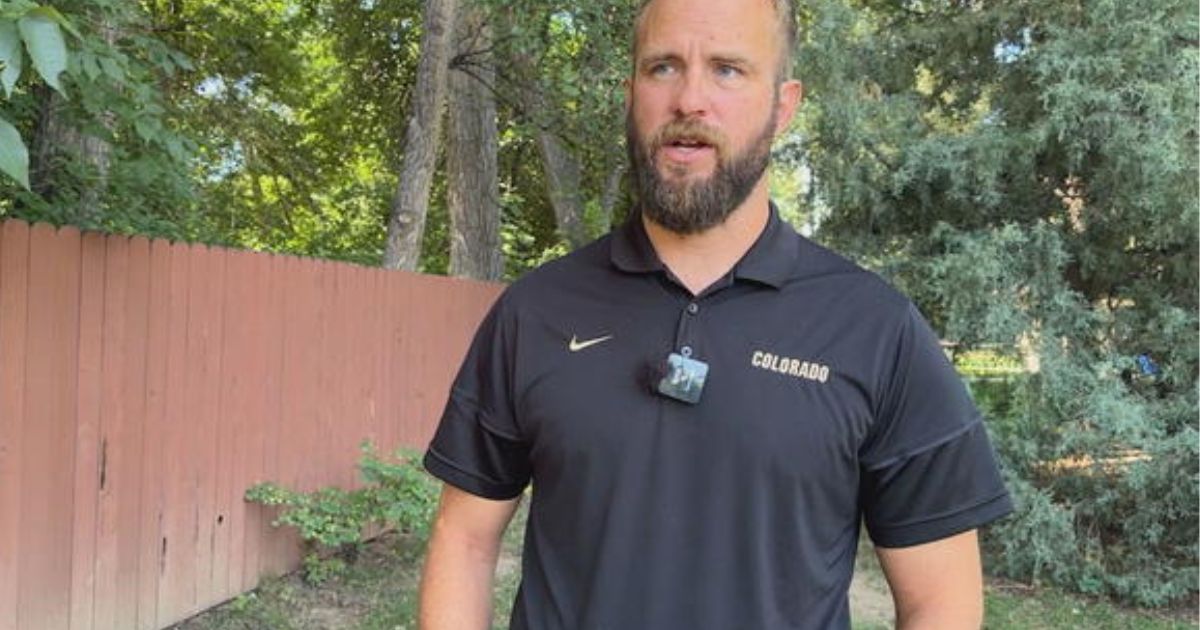Sean Tufts, a former football player at CU from 2000 to 2003, knows the unique challenges and triumphs that student-athletes experience. Tufts understands the importance of the mental health support to CU athletes and needs of these young athletes, which is why he is deeply involved with Buffs 4 Life, a nonprofit organization dedicated to providing mental health services to CU athletes once they hang up their jerseys.
Tufts is on a mission to debunk the prevailing myth that student-athletes lead glamorous lives as superstar, high-paid athletes.
In reality, they are college students juggling academics, athletics, and the emotional challenges that come with it. He emphasizes, “The public thinks that athletes are these superstar, high-paid athletes. That’s not true. These are still college kids.”
This perception can create a stigma around student-athletes, assuming that they have it all figured out when, in fact, they face a unique set of pressures and responsibilities.
Having been a student-athlete himself, Tufts intimately understands the rollercoaster ride that these young individuals experience. “I think there’s a stigma there that they have it made. That’s not true; they are making it,” he asserts.
From the thrill of victories on the field to the challenges of balancing academic commitments and the rigorous demands of their sport, student-athletes walk a tightrope.
The expectation to perform at their best while managing the emotional toll that comes with competition can take a toll on their mental well-being.
Buffs 4 Life: A Beacon of Mental Health Support To CU Athletes
This is where Buffs 4 Life steps in. The nonprofit, spearheaded by Tufts, recognizes the vital need to address the mental health of CU athletes, not only during their playing careers but also as they transition into life beyond the field.
“Our goal is to take that thing we do on a basketball court, on a football field, on a ski slope, and let the public know… You know, you’ve got to make your mind as strong as your body,” Tufts explains.
Buffs 4 Life believes in the power of strengthening mental resilience alongside physical prowess.
The challenges athletes face don’t end when their playing days conclude. In fact, the transition out of competitive sports can be especially daunting.
Buffs 4 Life recognizes that this transition period can bring its own set of mental health challenges, including identity crises and loss of structure.
The nonprofit provides a safety net for CU athletes during this critical phase of their lives. It offers a range of mental health services, including counseling, therapy, and support groups, tailored to the unique needs of former student-athletes.
One of the key objectives of Buffs 4 Life is to break down the stigma surrounding mental health in the world of athletics.
By openly addressing the mental health needs of student-athletes and providing a platform for discussion, the organization hopes to create an environment where seeking help is not seen as a sign of weakness but as a sign of strength.
Through awareness campaigns, workshops, and partnerships, Buffs 4 Life endeavors to foster a culture of mental well-being within the CU athletic community.
Sean Tufts’ dedication to the mental health of CU athletes extends far beyond his playing years. He is a living testament to the idea that former athletes can continue to make a profound impact on the lives of their peers.
Buffs 4 Life stands as a testament to his unwavering commitment to supporting and uplifting the mental well-being of CU athletes, ensuring that they have the resources and support they need, both during their playing careers and in the chapters that follow.
In a world where the pressure to perform is immense, Buffs 4 Life serves as a reminder that mental health should always be a priority, regardless of one’s athletic prowess.
It’s a rallying cry for the athletic community to recognize that strength extends beyond the physical and that taking care of one’s mental health is an integral part of being a successful athlete, on and off the field.


























